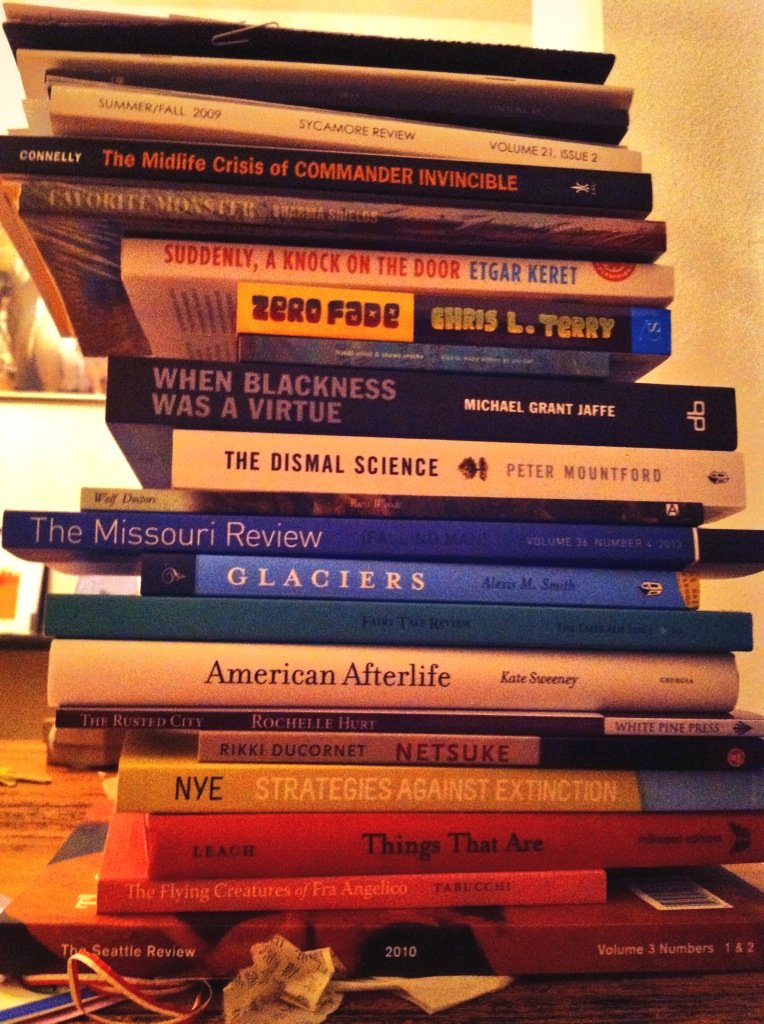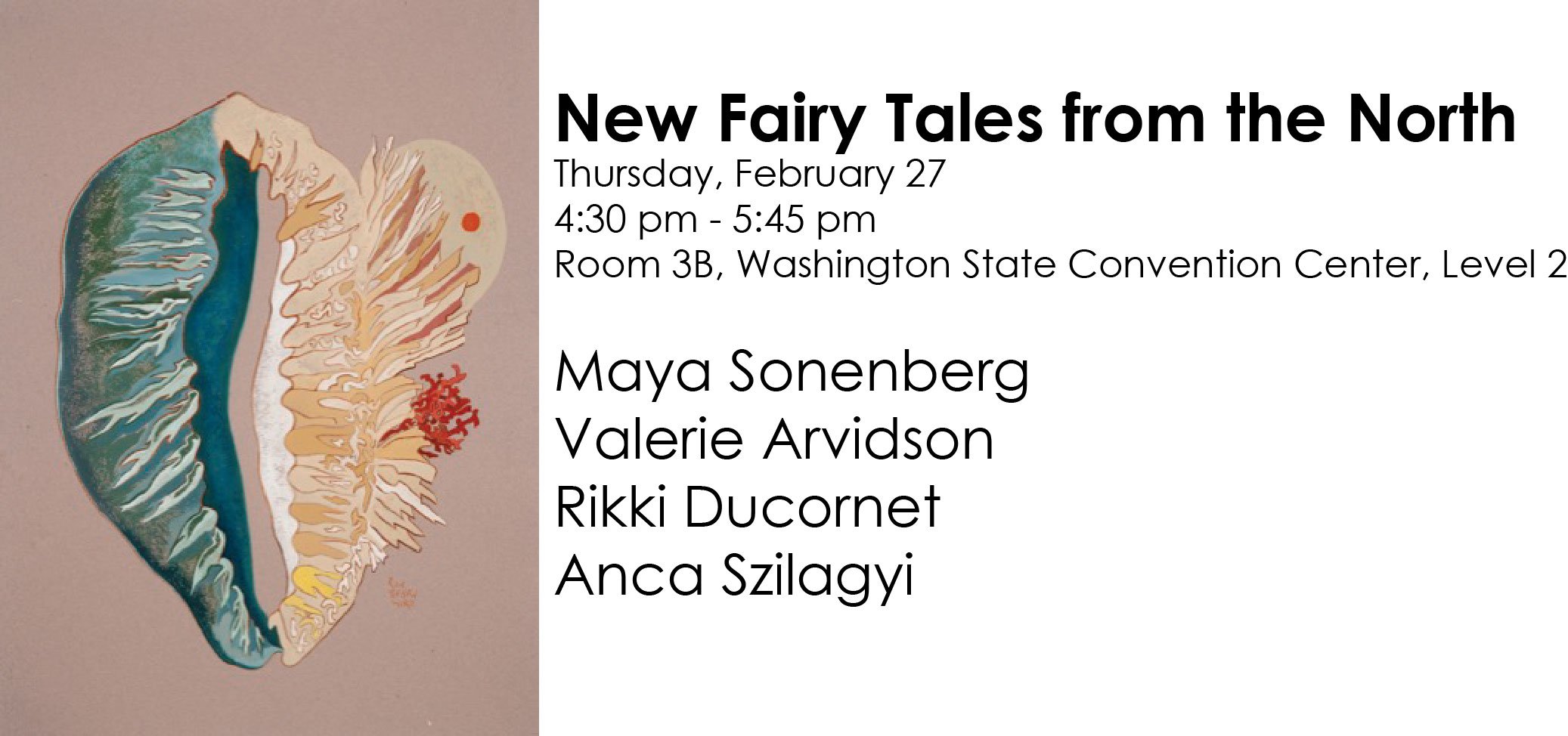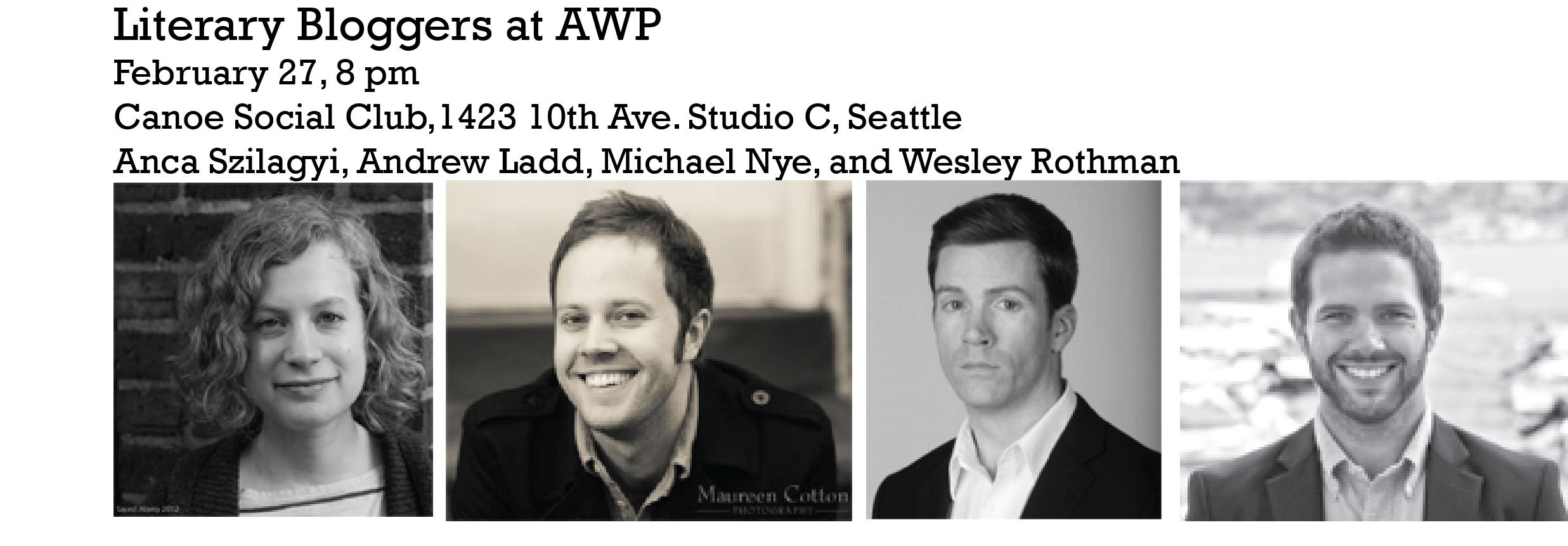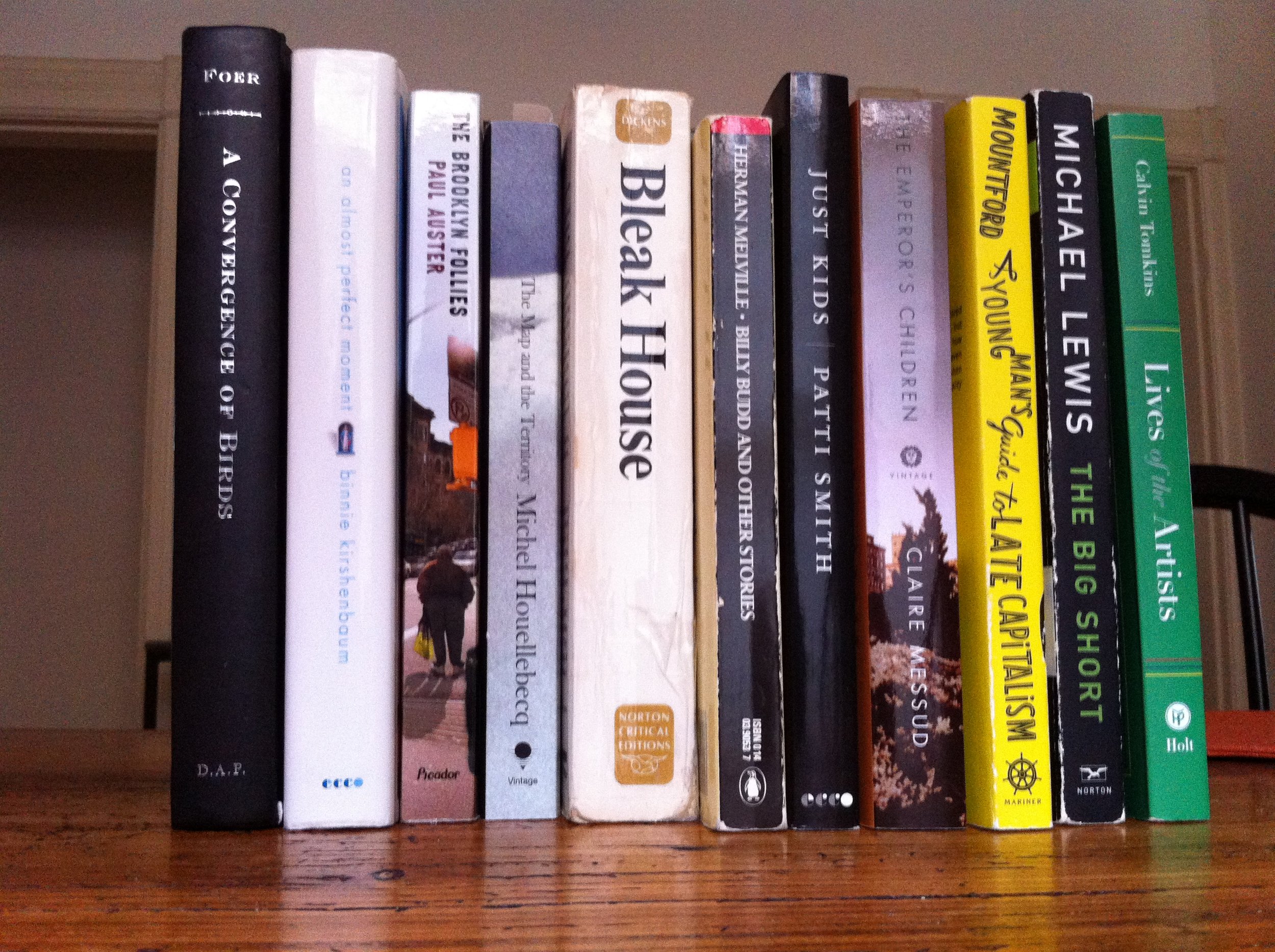 This year, AWP has been schmoozier, in a pleasant way, as I spent more time with readings, receptions, and lunch/coffee/dinner dates and less time with panels and the book fair. We took a break from the conference Friday night to see Mr. Burns at the Gutherie Theater, an apocalyptic play spanning from the near future to 75 years into the future, in which the surviving population tries to retell and recreate episodes from The Simpsons (particularly the "Cape Fear" episode) as a way of coping. Over time, The Simpsons evolves into totally weird, wonderful, and scary mythology. I highly recommend it!The two panels I attended were excellent, and I'm posting my notes right over here:Small is the New Big: Working with Independent Presses to Build a Literary CareerModerator: Michelle Brower, agent at Folio Literary ManagementPanelists: Molly Fuller, Production Editor of Coffee House Press; Ethan Nosowsky, Editorial Director of Graywolf Press; Erin Harris, agent at Folio Literary Management; and Cal Morgan, Executive Editor of Harper and Editorial Director of Harper Perennial.
This year, AWP has been schmoozier, in a pleasant way, as I spent more time with readings, receptions, and lunch/coffee/dinner dates and less time with panels and the book fair. We took a break from the conference Friday night to see Mr. Burns at the Gutherie Theater, an apocalyptic play spanning from the near future to 75 years into the future, in which the surviving population tries to retell and recreate episodes from The Simpsons (particularly the "Cape Fear" episode) as a way of coping. Over time, The Simpsons evolves into totally weird, wonderful, and scary mythology. I highly recommend it!The two panels I attended were excellent, and I'm posting my notes right over here:Small is the New Big: Working with Independent Presses to Build a Literary CareerModerator: Michelle Brower, agent at Folio Literary ManagementPanelists: Molly Fuller, Production Editor of Coffee House Press; Ethan Nosowsky, Editorial Director of Graywolf Press; Erin Harris, agent at Folio Literary Management; and Cal Morgan, Executive Editor of Harper and Editorial Director of Harper Perennial.
- Access to early and frequent publication (such as online) has allowed an enormous amount of creativity. Adventurous small presses are publishing successful works, and big houses are discovering writers earlier as a result. -Cal Morgan
- Small presses take on books that might not seem readily marketable from a big publisher's perspective, but can maximize those books' audiences. -Ethan Nosowsky
- Small presses can facilitate reviews that build the writer's readership. -Erin Harris
- The reputation and backlist of a small press have cultural capital. -Molly Fuller
- Small presses are also an opportunity for seasoned authors to try something new. -Michelle Brower
- Many authors who work with both small and big presses are big supporters of new writers and facilitate connections. -Cal Morgan
- It was a relief to hear all the panelists are avid readers of small press books!
Examples of successes:
- Eiomear McBride's A Girl is a Half-Formed Thing, published by Coffee House after the author spent 10 years trying to get it published and being told the publishers loved it but thought readers wouldn't enjoy it. You may already know the book is enormously successful.
- Erin Harris found short story writer Stacy Tintocalis after reading her collection The Tiki King, published by Swallow Press, an imprint of Ohio University Press, and discovered Brian Furuness, author of The Lost Episodes of Revie Bryson (Dzanc) after reading two of his stories in literary magazines.
- Graywolf Press published a 20-year retrospective of Geoff Dyer's essays and was able to do so successfully based on its backlist of essay collections.
- Cal Morgan discovered Blake Butler after publishing his short stories in the blog Fifty-Two Stories; he went on to publish three books from Butler, and Butler connected him to more authors.
It's a Crime to Skip this Panel: Approaches to Crime Fiction(Nb. The authors on this panel have multiple books out--see the link above for a more expansive list.)Moderator: Michael Kardos, author of Before He Finds Her.Panelists: Joy Castro, author of Hell or High Water; Chris Abani, author of Secret History of Las Vegas; Christopher Coake, author of You Came Back; Lori Rader-Day, author of The Black Hour.
- Much of great literature (Beloved, The Great Gatsby) spins around a crime. -Michael Kardos
- Joy Castro explores the chasm between the ideal of legal justice and its reality. She asks: whose law? To control whose bodies is the law written? Who is permitted to get away with crime? Who isn't? How does the aftermath manifest?
- The best suspense comes from characters: embed them with contradictions and set them loose. Don't choose a main character who knows everything. -Joy Castro
- Misdirections and clues should all arise from point of view: different characters will pick up on different things. -Lori Rader-Day
- Think of pacing as interval training, alternating between intense, fast-paced, action-packed scenes and more quiet, emotional scenes. -Joy Castro
- Every story is a riddle. Stories trace an outline for the riddle of living. We don't care about characters who are not fucked up. -Chris Abani
- Good art sets out to do something and does it. That's all there is. There are no genres. -Chris Abani
- Finding the voice of the novel is key to finding the novel. -Joy Castro
- Structure is the skeleton of a book. Voice is its soul, its reason for existence. -Chris Abani
- If you're a surgeon and remove the wrong kidney, that's bad. You have so many opportunities to get your book right. -Michael Kardos
On research:
- Read two books then close your eyes. -Christopher Coake
- Write the book before you do research, then research what you need to know. -Lori Rader-Day
- Research a lot then forget it. Don't write with your notes open; the divine details will come to you. -Joy Castro (My preferred approach...I love research and tend to pick stories that require it.)
- The only question you need is "Why?" -Chris Abani
Book Fair Loot!I sprinted through the book fair in the last 45 minutes on Saturday. I managed to get something from every genre, as well something from every "genre" of book fair stuff: freebies, cheapies, full price-ys, a notepad, bookmarks, and even an adorable pinwheel from Pacifica Literary Review, fashioned from pages of poetry.I'm also happy to discover that Twitter *can* work for authors. Shulem Deem, author of the memoir All Who Go Do Not Return (Graywolf Press) followed me on Twitter several months ago; I was intrigued by the premise of his memoir, which is about leaving the Hasidic Jewish community; and his was the first book I bought at the fair. Can't wait to read it.See you in L.A. in 2016!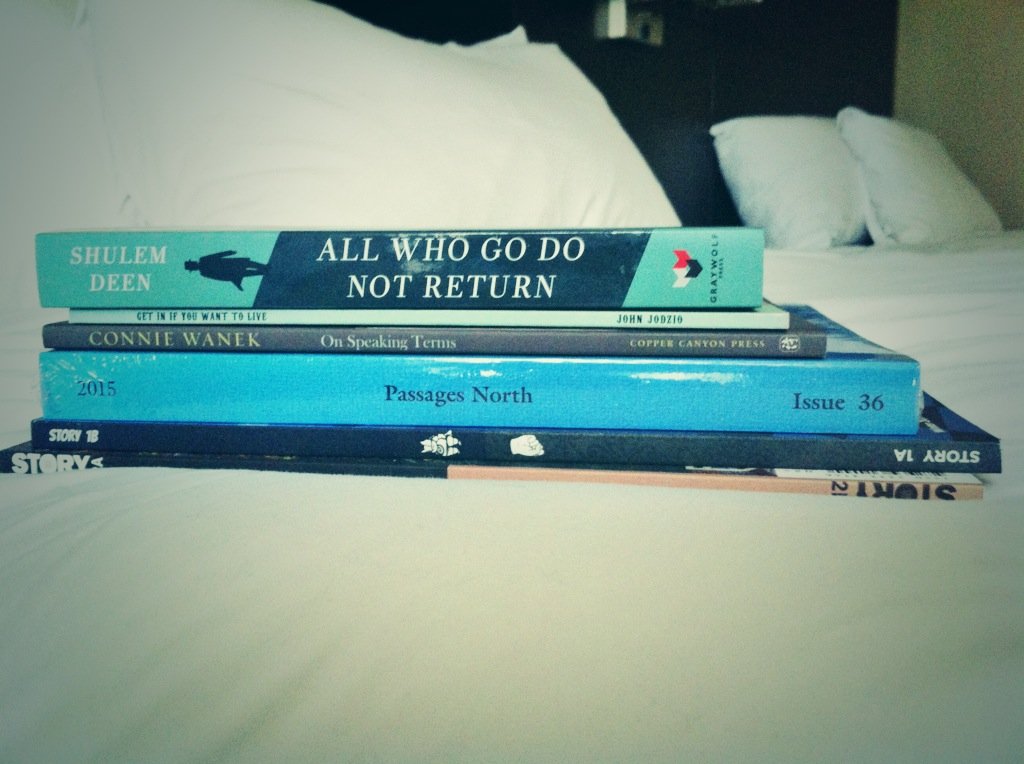
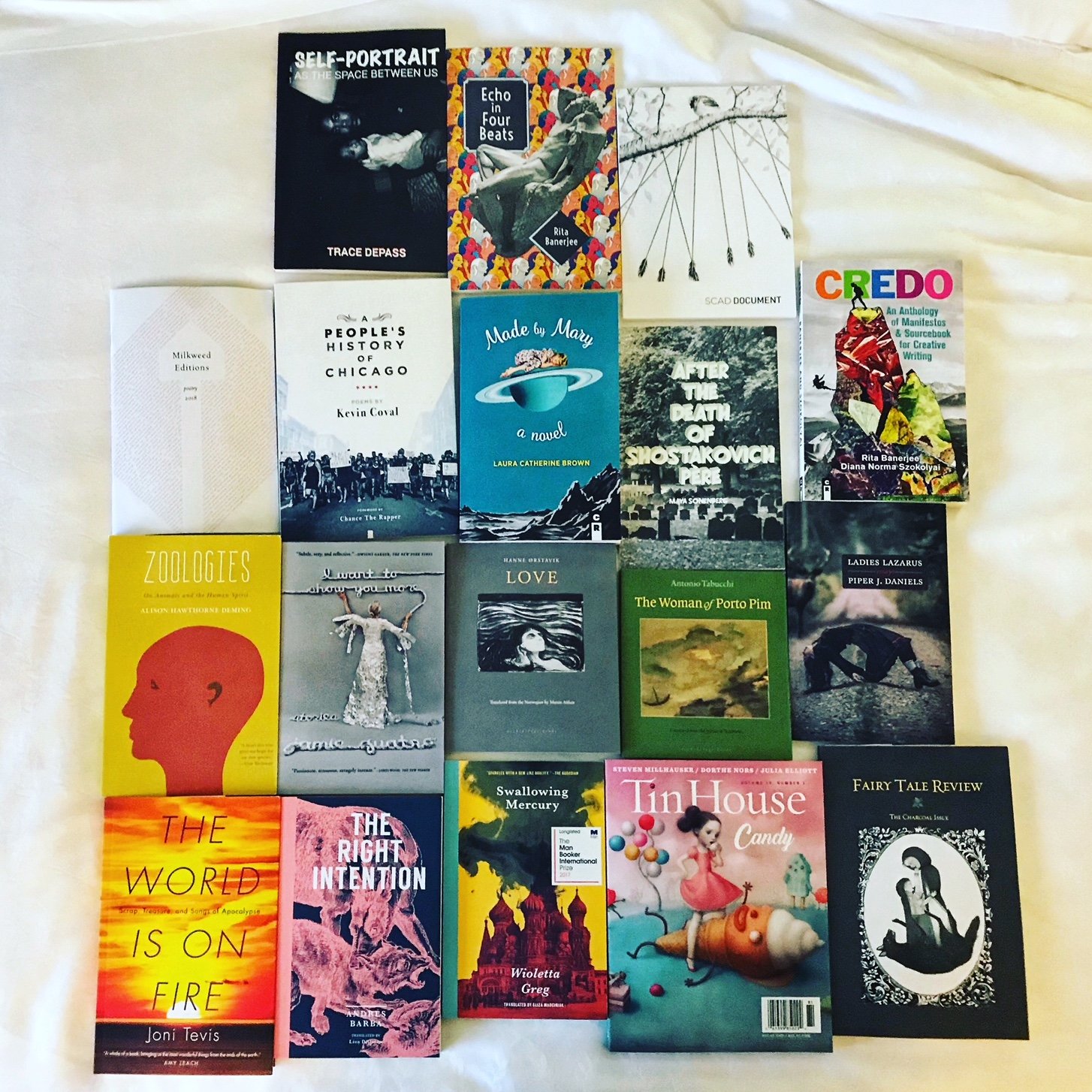 In my last post I promised blood. Well, I'll just say I slid my boot off Friday night and it was like I was one of Cinderella's stepsisters. I'm still limping. On to day 3!What is a better breakfast than a leftover Cuban sandwich? Leftover fried oysters. Just kidding! The Cuban sandwich was much better. Day 3 was the best because Michael got a one-day pass and we got to roam the book fair together."The Worst Writing Advice I Ever Got" is an irresistible title, so of course we wrenched ourselves away from the book fair for it. Here, without narrative, a fun grab-bag of quotes:
In my last post I promised blood. Well, I'll just say I slid my boot off Friday night and it was like I was one of Cinderella's stepsisters. I'm still limping. On to day 3!What is a better breakfast than a leftover Cuban sandwich? Leftover fried oysters. Just kidding! The Cuban sandwich was much better. Day 3 was the best because Michael got a one-day pass and we got to roam the book fair together."The Worst Writing Advice I Ever Got" is an irresistible title, so of course we wrenched ourselves away from the book fair for it. Here, without narrative, a fun grab-bag of quotes:
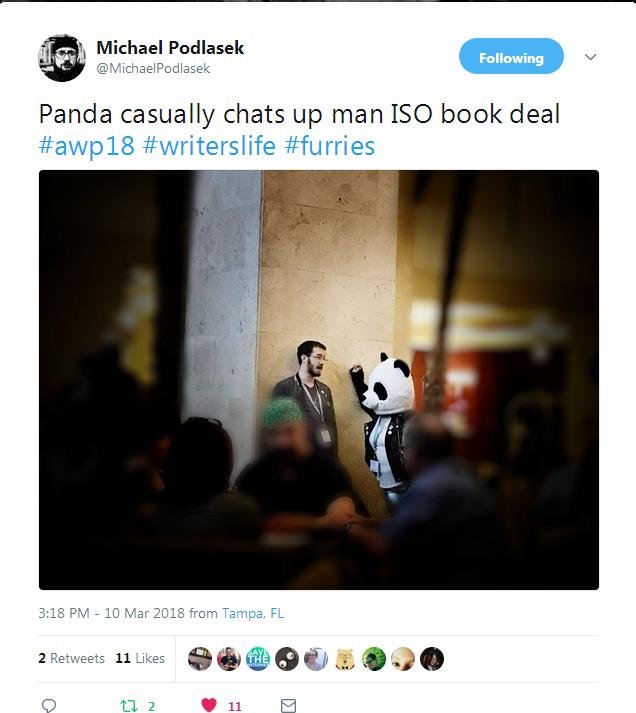 Next year in Portland! Maybe Seattleites can get some party buses organized...
Next year in Portland! Maybe Seattleites can get some party buses organized...


